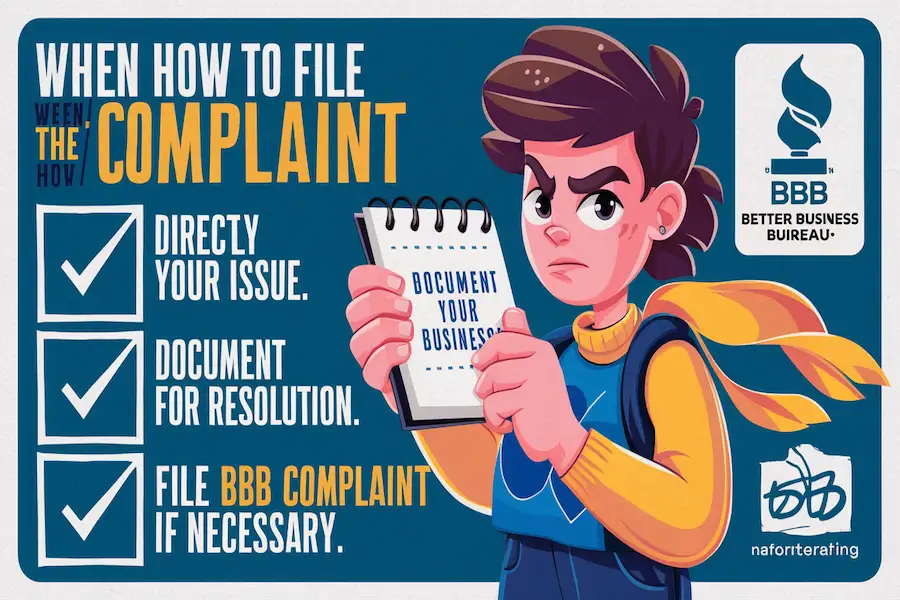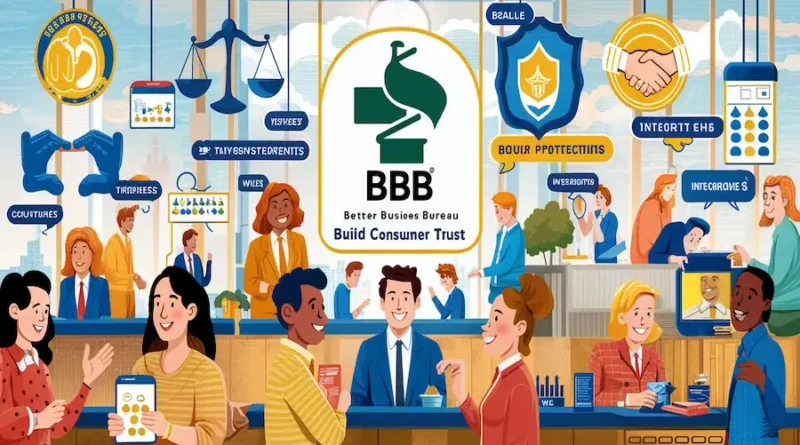How Better Business Bureaus Build Consumer Trust
Before buying from a new company it’s normal to wonder if it’s really trustworthy. I’ve been there too and a few quick checks on the Better Business Bureaus (BBB) have saved me from more than one bad decision.
The BBB isn’t just about ratings. It is a network built to help people make safer choices and to encourage businesses to stay honest and fair. Let’s break down what it does, how it helps and why it still such a big deal today.
What Are Better Business Bureaus?
Better Business Bureaus are non profit groups that have been since 1912. Their mission? To stop false advertising and make sure businesses treat people fairly.
In simple terms the BBB checks how trustworthy a company is give it a grade and help to solve problems between buyers and businesses. Whenever I see the BBB logo on a website, it feels like a small sign that says, “You can trust us.”
How the Better Business Bureaus Work
There are more than 90 BBB offices across U.S. and Canada. Each one keeps an eye on local businesses, handles complaints and shares verified information with the public.
The BBB’s A+ to F grading system is easy to understand the better a company treats customers, the higher its grade. Businesses that ignore complaints drop in ratings while those that respond quickly build trust. It’s about fairness not perfection.
Why the Better Business Bureaus Matter for Consumers
Shopping online is convenient but also risky. The Better Business Bureaus help you tell the difference between reliable and sketchy companies. On BBB.org, you can type any business name check its rating and read reviews from real customers for free.
Unlike random review sites the BBB focuses on verified complaints and how each one was resolved. That’s what makes it such a dependable resource when you’re unsure who to trust.
How the BBB Helps Businesses Build Trust
The BBB is not only for consumers. It also gives honest businesses a way to stand out. Companies that meet ethical standard can apply for BBB accreditation and display the Accredited Business Seal. That small blue badge tell customers “We play fair.”
Accredited businesses also get support if a problem comes up. Once I helped a friend to file a Better Business Bureau complaint after a contractor overcharged him. The BBB stepped in and the issue was fixed in just a few days. Simple fair and effective.
How the BBB Handles Complaints
Filing a complaint through the Better Business Bureau is quick and free. Just go to BBB.org look up the business and explain the problem. The BBB then contacts the company and keeps you updated.
Most cases are handled within a few weeks. If a business refuses to respond that record stays on its BBB profile so others can see how it treats customers. The BBB never makes sales calls; they’ll only contact you about your case.
BBB Ratings and Accreditation Explained
Every business listed on the BBB gets a grade from A+ to F. The grade is based on:
- How fairly and quickly it handles complaints
- How long it’s been in operation
- The honesty of its advertising
- The level of public trust it’s earned
Getting accredited is optional. Businesses pay a small yearly fee to support BBB programs, but that doesn’t affect their rating. Grades depend purely on performance. If a company breaks BBB standards, it can lose its accreditation.
When to File a Complaint with the BBB
You should file a Better Business Bureau complaint if a business not fix a valid issue or keeps ignoring your messages. Try reaching out directly first if that doesn’t work, let the BBB step in.

The BBB doesn’t take sides it simply gives both you and the business a fair chance to resolve the problem.
How the BBB Fights Scams and Fraud
Scams are everywhere fake websites, job offers, online stores. The Better Business Bureaus fight back through their Scam Tracker, a free tool that shows where scams are happening in real time.
They also work with the Federal Trade Commission (FTC) and local law enforcement to stop fraud before it spreads. The International Association of Better Business Bureaus (IABBB) connects 90+ offices worldwide. As of 2025, Kip Morse leads the IABBB, focusing on transparency and digital safety.
The BBB’s Digital Transformation
Even after a century, the BBB hasn’t stayed stuck in the past. It now uses AI tools to spot fake reviews, detect suspicious patterns and improve response times. Their website works perfectly on phones and tablets, so you can file a complaint or check a company anywhere anytime.
It’s a great example of how an old institution can adapt while keeping its mission alive.
Education and Consumer Awareness
Beyond ratings and complaints, Better Business Bureaus also educate the public. They host webinars issue scam alerts and even work with schools to teach young people how to stay safe online.
For small business owners, the BBB offers guides on customer service, reputation management and handling complaints. Their tips are practical and easy to apply real help for anyone trying to do business the right way.
Common Myths About the BBB
A lot of people think that BBB accreditation means a business is perfect but that’s not true. It simply means the company agrees to be fair, honest and responsive to customers.
Another common myth is that paying the accreditation fee guarantees a good rating. It doesn’t. The BBB bases every rating on performance not payment. Everything is public from complaints to resolutions so anyone can check the facts.
How to Use the BBB Before You Buy
Before hiring or buying online, spend a few minutes on BBB.org:
- Search for the business name
- Check its grade and reviews
- Confirm whether it’s accredited
- Use the Scam Tracker to avoid current frauds
- Contact your local BBB if you want help by phone
- A quick look can save you money, stress and regret later.
The Future of the Business Bureaus
The Better Business Bureaus continue to evolve with smart technology, community partnership and global outreach. Their goal stays the same to promote honesty, protect consumers and support ethical business practices.
No matter how much technology changes, trust will always matter and the BBB keeps that trust alive.
My Honest Thoughts
After using the Better Business Bureaus for years, I truly believe it’s one of the best tools for smart shopping and safe business decisions.
If you’re a buyer, check the BBB before making a deal. If you’re a business owner, get accredited it shows you care about fairness and quality. I’ve seen how much confusion and stress it saves people and that’s why I recommend it every time.
FAQs
Q1: What does the BBB do?
Ans: It helps people find trustworthy businesses, rates them and helps resolve issues.
Q2: Is the BBB legit?
Ans: Yes. It is a trusted non profit organization that’s been around since 1912.
Q3: Why would the BBB call me?
Ans: Only to confirm complaint details never for marketing or sales.
Q4: Who leads the BBB?
Ans: Kip Morse is the President and CEO of the International Association of Better Business Bureaus.
Conclusion
For more than a century the Better Business Bureaus have connected customers and companies through honesty and trust.
Whenever I see that familiar blue seal, I know I m dealing with a business that values fairness. So before you buy from a new company take a minute to check BBB.org. It’s quick, free and might save you from a bad experience.
Want to explore more? Head over to FineGlob
